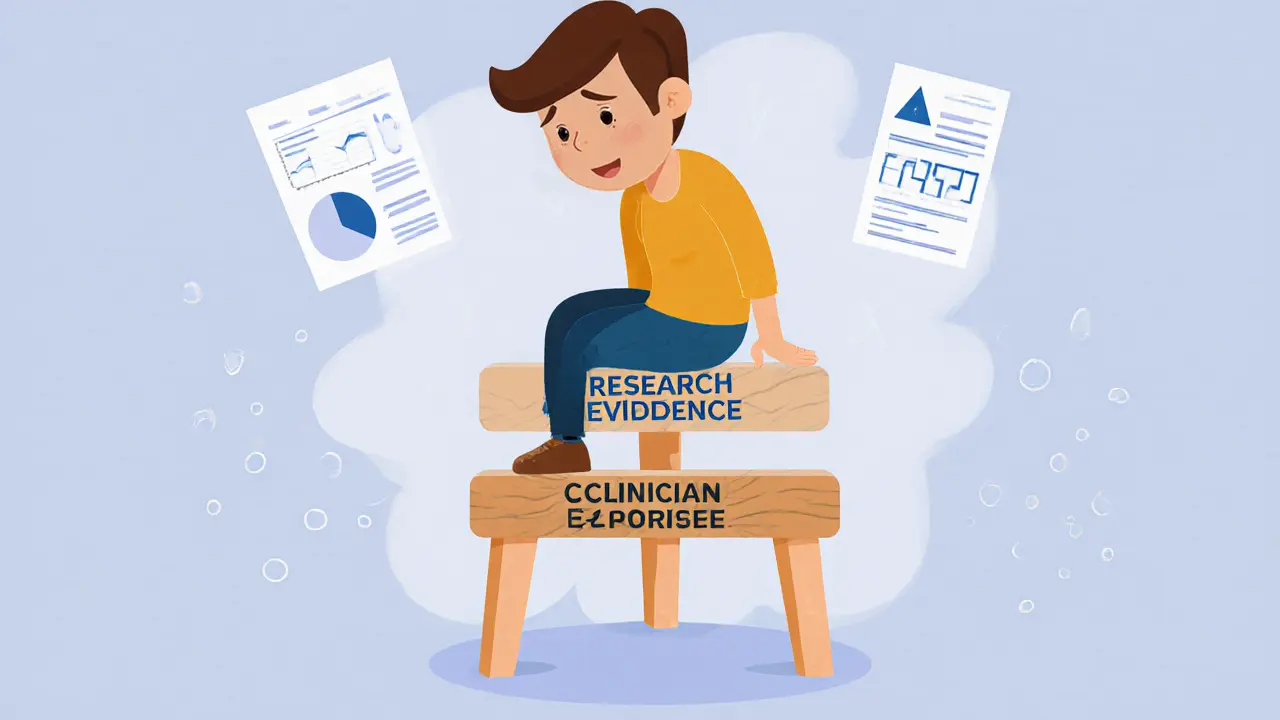Empiricky podložené metody: Jaké psychoterapie skutečně fungují
When you're looking for help with anxiety, depression, ADHD, or relationship problems, not all therapies are created equal. empiricky podložené metody, psychoterapeutické přístupy, jejichž účinnost byla ověřena v klinických studiích a opakovaně potvrzena v praxi. Also known as psychoterapie založená na důkazech, these methods don't rely on anecdotes or trends—they work because data shows they do. This isn't about magic or intuition. It's about knowing what actually changes behavior, thoughts, and emotions—based on real evidence.
Take KBT, kognitivně-behaviorální terapie, která se zaměřuje na přesvědčení a chování a má desítky studií potvrzujících její účinnost. Also known as kognitivně behaviorální terapie, it's the most researched method for anxiety, depression, perfectionism, and even ADHD-related negative thinking. Or IPT, interpersonální terapie, která řeší deprese prostřednictvím vztahů a má stejně silné důkazy jako KBT. Also known as interpersonální léčba deprese, it shows that healing often happens in the space between people, not just inside the mind. These aren't just buzzwords—they're tools with measurable results. Studies show IPT reduces depressive symptoms as effectively as antidepressants, and Behavioral Parent Training cuts ADHD-related tantrums by up to 60% in children under six.
You don't need to guess what works. If a method claims to help with trauma, addiction, or autism, ask: Is there data? The best therapies—like EMDR for PTSD, MCT for rumination, or Schémová terapie for personality disorders—have been tested across hundreds, sometimes thousands, of people. They're not popular because they sound nice. They're popular because they change lives.
And here’s the thing: the strongest therapy in the world won’t help if it doesn’t match your problem. Behavioral Parent Training works for ADHD toddlers—but not for adult burnout. IPT helps with relationship-based depression—but won’t fix a gambling addiction. That’s why knowing which method fits which issue matters more than the name of the therapist.
Below, you’ll find real examples of these methods in action: how to use a point chart for a child with ADHD, how IPT untangles depression tied to grief, how MCT stops endless overthinking, and why 86% of people get the same results from online therapy as from sitting in a room with a therapist. No fluff. No hype. Just what works—and how to find it.
Evidence-based terapie je integrace vědeckých důkazů, klinické zkušenosti a potřeb klienta. V ČR se postupně začíná uplatňovat, ale mnoho terapeutů ji stále ignoruje. Co to znamená pro klienty a jak ji rozpoznat.
